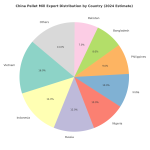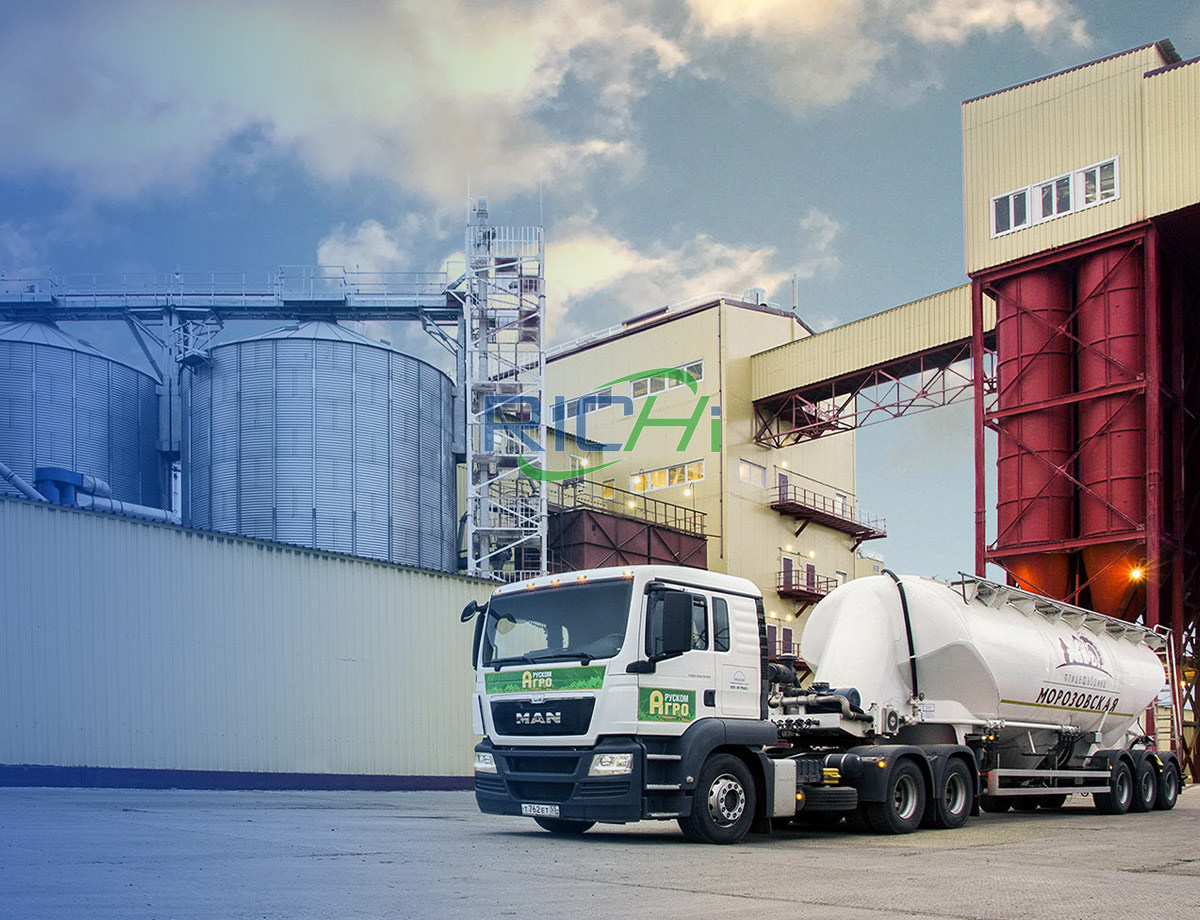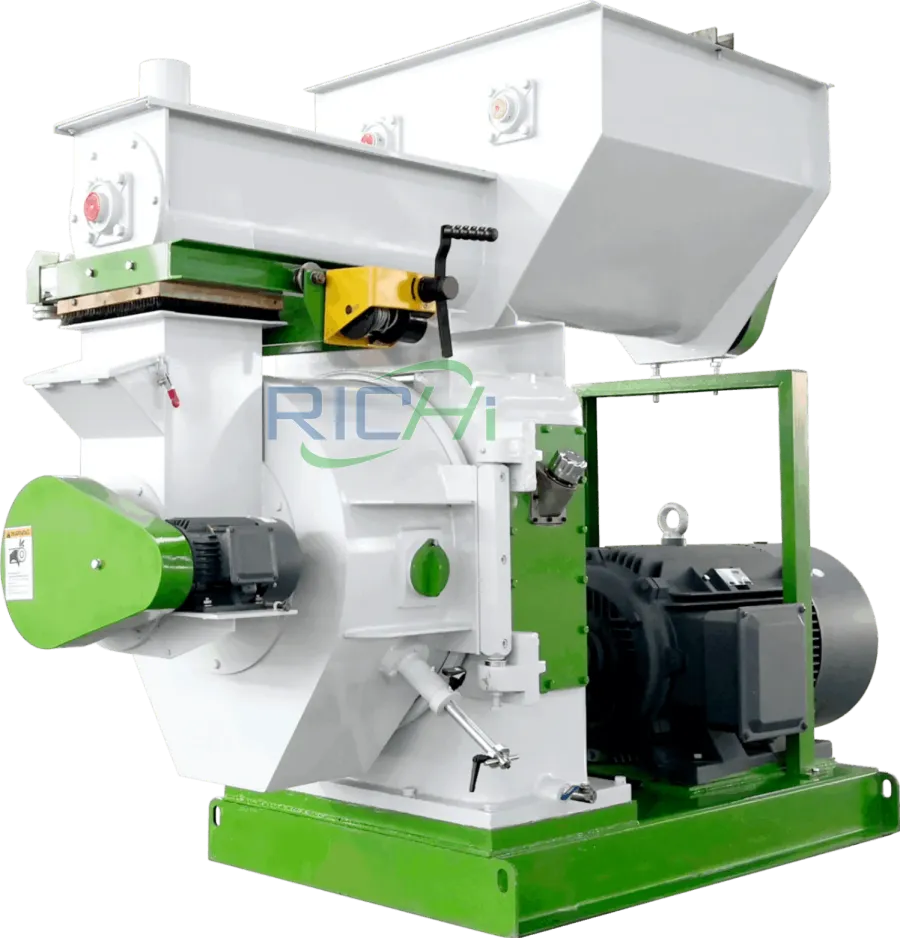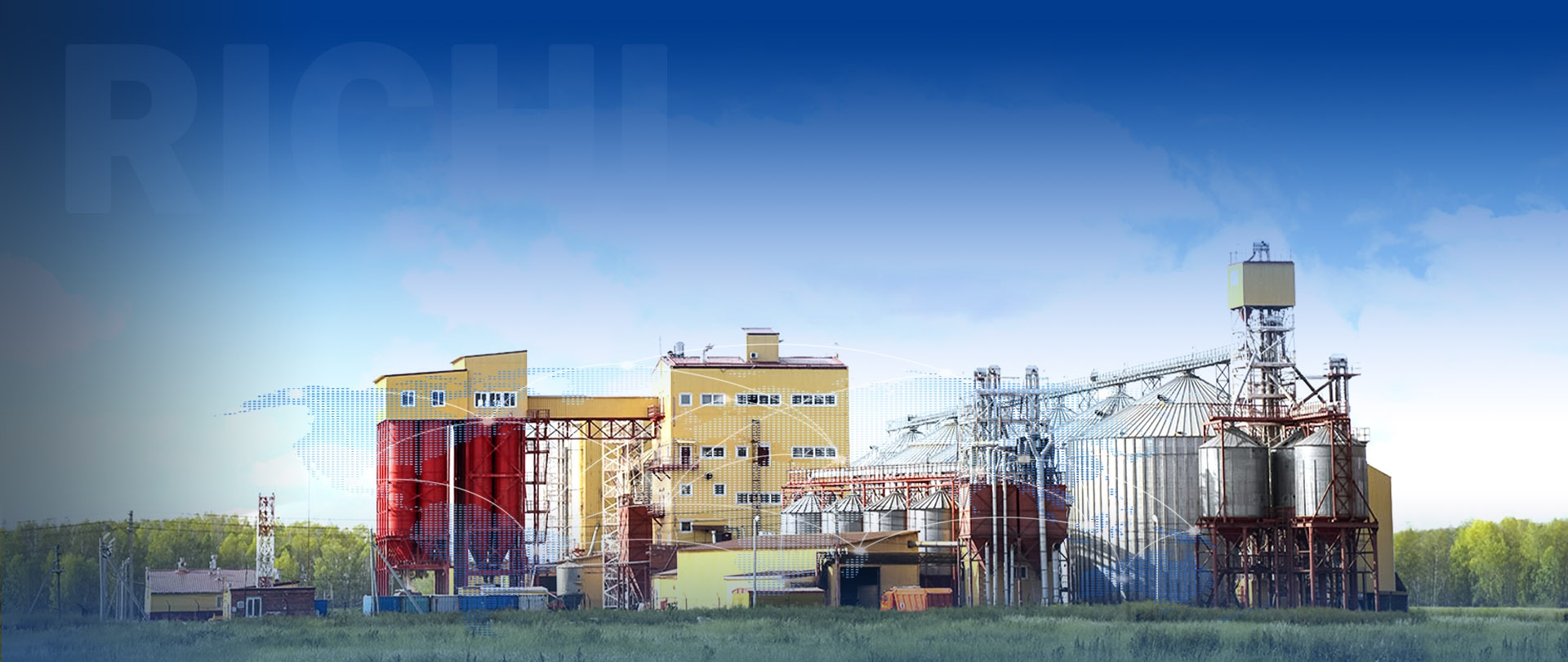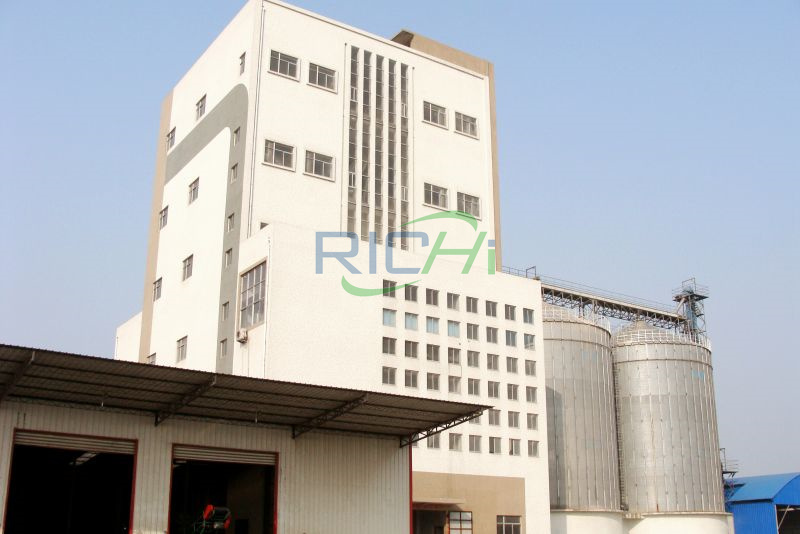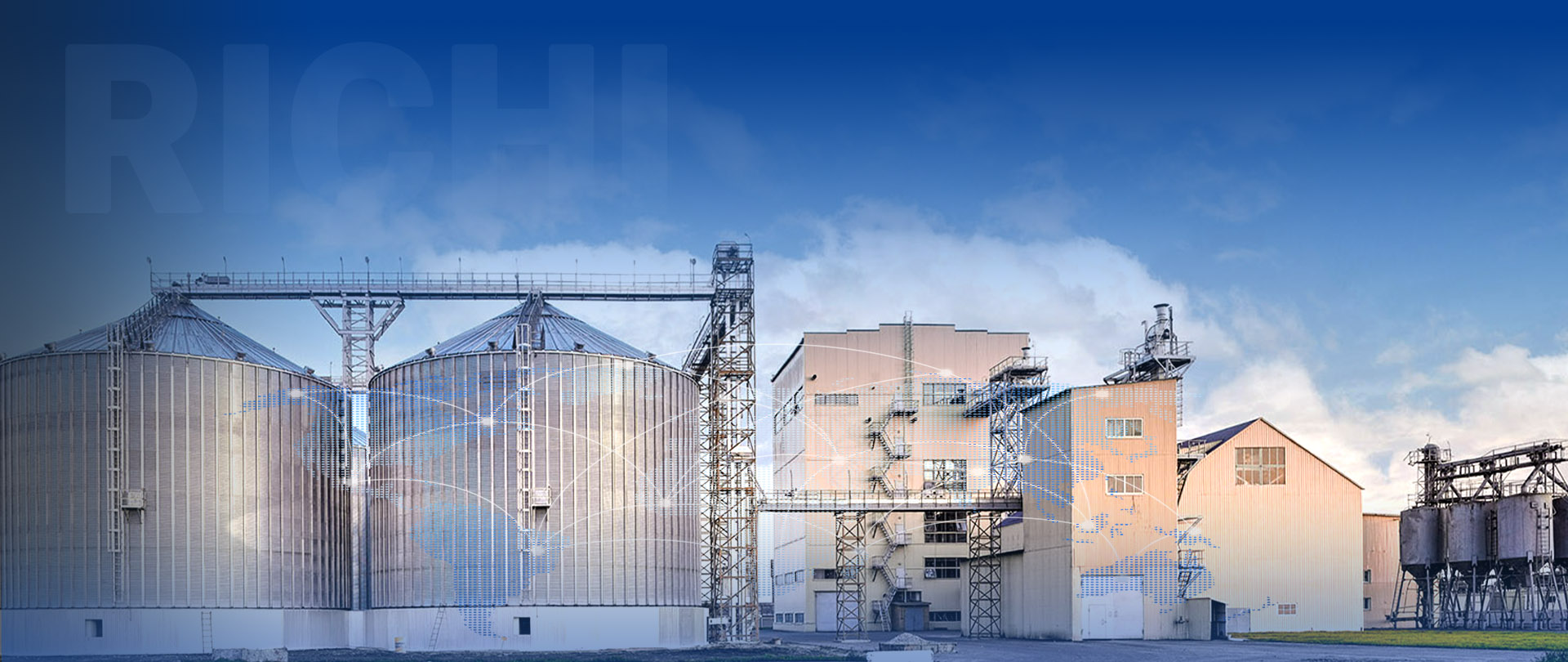Setting up a custom feed mill in Uganda presents a valuable opportunity to support the country’s diverse and expanding livestock sector. Uganda’s agricultural landscape, which includes both small-scale and commercial farming, requires a flexible approach to feed production. This article delves into the various types of animal feed that can be produced in a custom feed mill in Uganda, emphasizing the potential for a highly adaptable production facility.
Poultry Feed
Poultry farming is a major part of Uganda’s livestock industry, making poultry feed a key product for any custom feed mill:
- Broiler Feed:
- Starter feed (0-3 weeks)
- Grower feed (3-6 weeks)
- Finisher feed (6 weeks to market)
- Layer Feed:
- Chick starter (0-8 weeks)
- Grower feed (8-18 weeks)
- Layer feed (18 weeks onwards)
- Turkey Feed:
- Starter, grower, and finisher formulations
Poultry feed typically consists of ingredients like maize, soybean meal, fish meal, and essential vitamins and minerals. The custom mill can tailor protein levels and nutrient content to match specific growth stages and production goals.
Cattle Feed
Given the growth of Uganda’s dairy industry and beef production, cattle feed represents another vital product line:
- Dairy Cattle Feed:
- Calf starter
- Heifer feed
- Lactation feed (for milk production)
- Dry cow feed
- Beef Cattle Feed:
- Calf starter
- Grower feed
- Finisher feed
Cattle feed often includes maize bran, cottonseed cake, sunflower cake, and molasses, along with essential minerals. The custom mill can produce both pelleted and mash feeds to accommodate different farming systems.
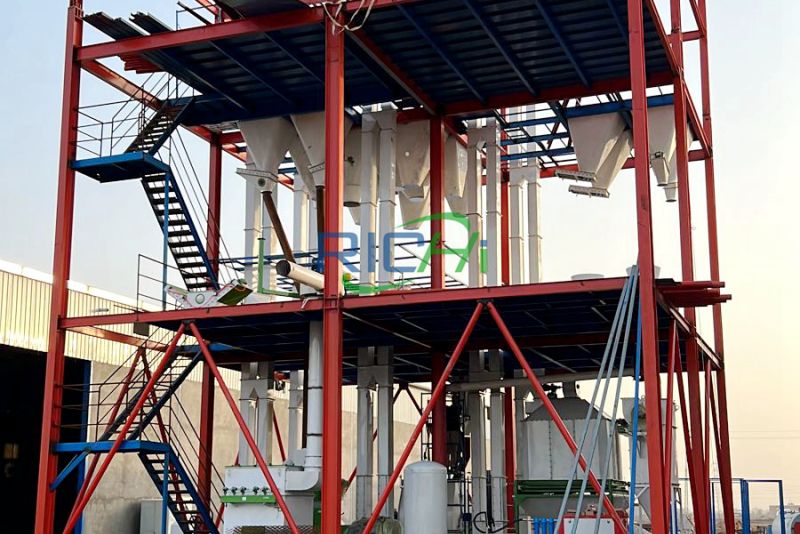
Pig Feed
With the rising popularity of pig farming in Uganda, there is a growing demand for specialized pig feed:
- Piglet Feed (creep feed)
- Grower Feed
- Finisher Feed
- Sow and Boar Feed
Pig feed usually contains energy-rich ingredients like maize and wheat bran, combined with protein sources such as soybean meal and fish meal. The custom mill can adjust fat and protein levels to meet the needs of different growth stages and production objectives.
Fish Feed
Uganda’s significant aquaculture sector, particularly in tilapia and catfish farming, necessitates the production of fish feed:
- Fry Feed
- Fingerling Feed
- Grower Feed
- Finisher Feed
Fish feed requires a high protein content and typically includes ingredients like fish meal, soybean meal, and wheat bran. The custom feed mill can produce either floating or sinking pellets, depending on the fish species and farming method.
Goat and Sheep Feed
Small ruminant farming is prevalent in Uganda, creating a need for specialized feeds for goats and sheep:
- Kid and Lamb Starter
- Grower Feed
- Lactating Doe and Ewe Feed
- Maintenance Feed for Adults
These feeds often contain a mix of grains, protein sources, and roughage, with mineral supplements to prevent common deficiencies in small ruminants.
Rabbit Feed
Rabbit farming is increasingly popular in Uganda, providing meat and income for small-scale farmers:
- Starter Feed
- Grower Feed
- Breeder Feed
Rabbit feed typically includes high-fiber ingredients like alfalfa, combined with grains and protein sources to support rapid growth and reproduction.
Specialty and Custom Feeds
A custom feed mill in Uganda can also serve niche markets and specific farmer needs:
- Organic Feeds: Producing certified organic feeds for various livestock, using organically grown ingredients.
- Medicated Feeds: Incorporating approved medications or supplements for disease prevention or growth promotion, following local regulations.
- Performance Enhancing Feeds: Formulated for show animals or high-performance livestock.
- Feed Concentrates: Producing protein or mineral concentrates that farmers can mix with locally available ingredients. (Related post:30T/H Commercial Feed Mill in Russia)
Considerations for Feed Processing
To efficiently process this diverse range of feeds, a custom feed mill in Uganda should take into account the following:
- Versatile Equipment:
- Multi-purpose grinders for processing various grains and ingredients.
- Mixers that can handle both small and large batches.
- Pelleting machines with adjustable die sizes for different feed types.
- Extruders for producing floating fish feed.
- Quality Control Measures:
- Implement strict quality control procedures to ensure consistent nutrient content.
- Regularly test raw materials and finished products.
- Adhere to Uganda’s feed safety regulations and international standards.
- Formulation Flexibility:
- Employ nutritionists to develop and adjust feed formulations.
- Use software for precise ration balancing and cost optimization.
- Storage and Handling:
- Ensure proper storage facilities for various raw materials.
- Maintain separate storage for finished products to prevent cross-contamination.
- Implement efficient material handling systems for different feed types.
- Packaging Options:
- Offer various packaging sizes for both small-scale and commercial farmers.
- Provide bulk delivery options for large-scale operations.
- Seasonal Adaptability:
- Adjust production schedules to meet seasonal demand fluctuations.
- Develop feed formulations that utilize locally available ingredients year-round.
Challenges and Opportunities
Building a custom feed mill in Uganda capable of processing a wide variety of feeds presents both challenges and opportunities:
- Challenges:
- Raw Material Sourcing: Ensuring a consistent supply of quality ingredients, which may involve developing relationships with local farmers and importers.
- Market Education: Educating farmers about the benefits of commercial feed and proper feeding practices.
- Competition: Differentiating from existing feed producers and informal feed mixing practices.
- Regulatory Compliance: Navigating Uganda’s feed regulations and quality standards.
- Opportunities:
- Innovation: Developing unique feed formulations tailored to local livestock breeds and farming conditions.
- Sustainability: Incorporating locally sourced, sustainable ingredients to reduce costs and environmental impact.
- Value-Added Services: Offering nutritional consulting and farm management advice alongside feed products.
- Export Potential: Exploring opportunities to export high-quality feed to neighboring countries.
Conclusion
Establishing a custom feed mill in Uganda that can process a wide range of animal feeds will position the facility as a versatile and vital contributor to the country’s agricultural sector. By addressing the diverse needs of poultry, cattle, pig, fish, and other livestock farmers, the mill can play a significant role in enhancing animal nutrition, farm productivity, and food security in Uganda.
The key to success lies in maintaining flexibility in production capabilities, ensuring consistent quality, and staying attuned to the evolving needs of Uganda’s farmers. As the livestock sector continues to grow and modernize, a well-equipped and adaptable custom feed mill will be well-positioned to meet the changing demands of the market, supporting Uganda’s agricultural development and economic growth.


